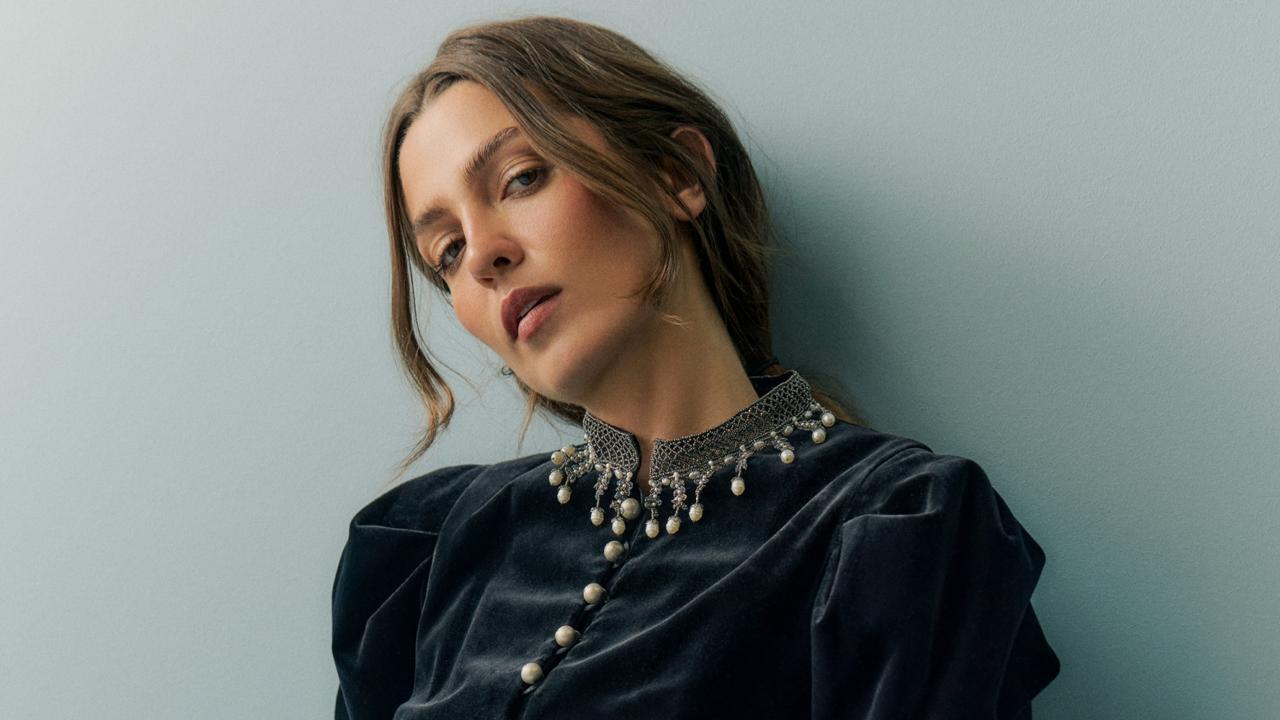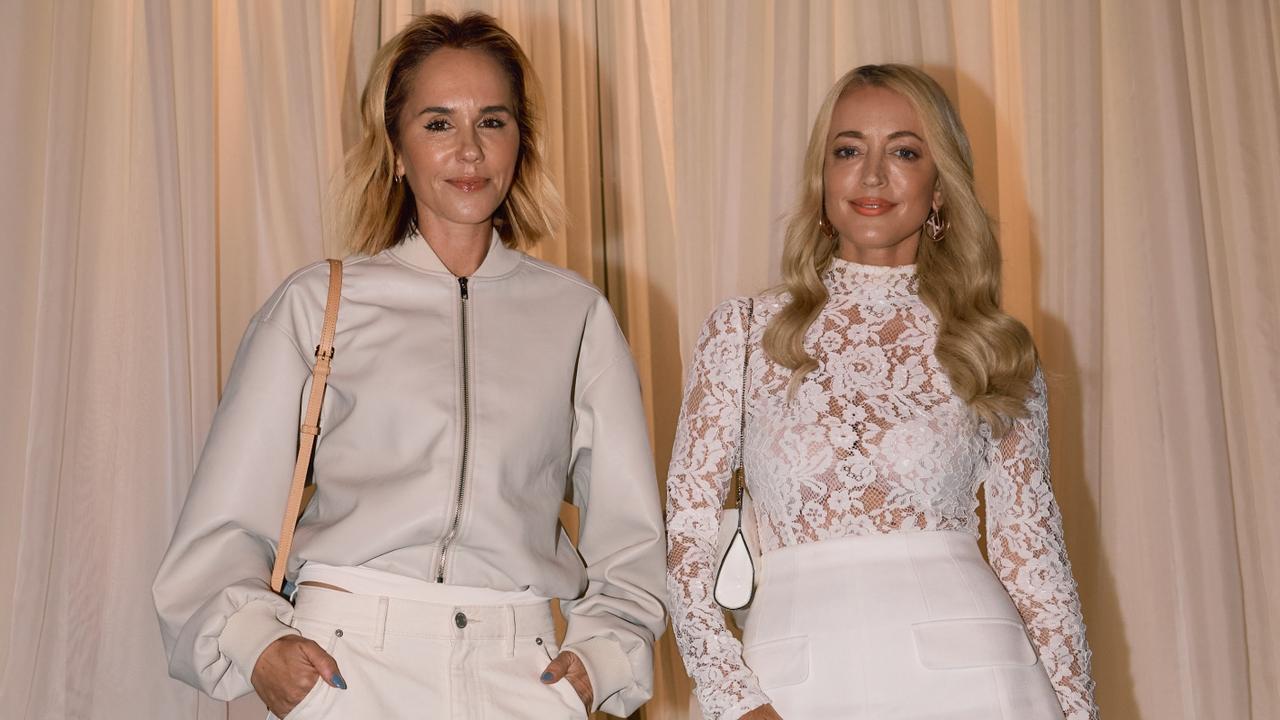Debbie Harry: from sex symbol to music icon
BLONDIE’S defiance has not dimmed since the 1970s, when she first tore her stiletto-boot heel through the rules. She might be 71, but she’s still a punk.
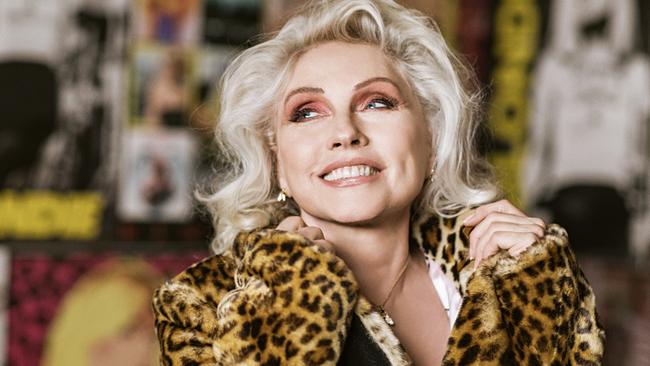
Stellar
Don't miss out on the headlines from Stellar. Followed categories will be added to My News.
DEBBIE Harry looks me straight in the eye and lets rip. “If this is the hook to sell this story and all of these pictures, it’s insulting to me,” she says.
We are sitting in the lounge room of a Brooklyn apartment, as stylists and photographers pack up after Stellar’s photo shoot.
Harry speaks quietly, but the dark eyeshadow and tousled hair make her look fierce – and more than a little intimidating.
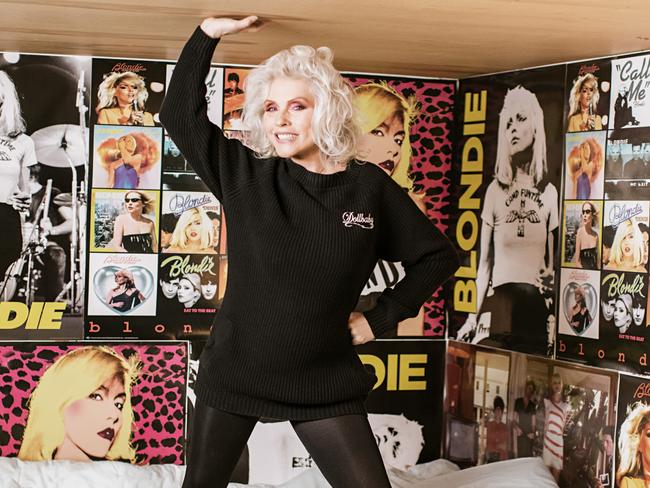
I have been asking – trying to ask – whether Harry thinks there’s a double standard when commentators criticise Madonna, 58, for being too old for the music business, while few people seem to have a problem with 73-year-old Mick Jagger.
Harry, 71, is releasing another Blondie album, Pollinator, and is about to embark on a world tour that includes Australia, so it seems likely she has an opinion.
“You are going on about this [age question],” she says. “You put it in people’s brains, and it becomes an issue, you know? That’s what you’re doing — you are creating an issue.”
She is right. But I don’t intend it as an insult. Harry has been a trailblazer for women in music on many fronts, and now she’s pioneering another: longevity. In the ’80s, people were amazed that Harry was still going strong at 40. She’s been having the last laugh for 30 years.
“Sometimes I look at them and think, ‘Gosh, you used to be so cute.’”
A Debbie Harry interview is unlike any other. She doesn’t want to talk about herself. She doesn’t like looking backwards, or inwards. She hates being called an icon. And she doesn’t play nice if she doesn’t want to. While Madonna carefully crafts her image, Harry doesn’t give a damn.
Her rebelliousness, her honesty, and her refusal to conform to expectations are as strong today as they were in the ’70s, when she tore her stiletto-boot heel through the rules for women in music. She might be 71, but she’s still a punk.
Debbie Harry climbs onto a bed surrounded by Blondie posters, a concept dreamed up by Stellar’s editor-in-chief to illustrate the evolution of the once quintessential pin-up girl of pop to the music veteran she is today.

“This is weird,” she says, but ever the professional she shifts wordlessly into character for the photographer. She runs her fingers through her hair. Twists her face into a sultry snarl. Stares defiantly at the camera. After 40-odd years in front of the lens, Harry needs no instruction in how to project punk sex goddess.
The pictures, collated by Stellar’s creative director and flown over from Australia for the shoot, are a collage from her early career – there’s the thigh-high booted “Rip Her To Shreds” Harry, the playful “Call Me” Harry, and the sexy “Heart Of Glass” Harry. They were taken half a lifetime ago, when the 30-something bleach blonde was sticking her tongue out at an industry run by and for men, showing them that a sex symbol could also be mouthy and smart.
“I guess I am proud of [the photos] and they are fun and interesting,” she tells me later. “Sometimes I look at them and think, ‘Gosh, you used to be so cute.’ But most of the time it’s a quick pan, it’s not like I’m standing there staring at them.”
“I don’t think men have any control over their instincts and neither do we.”
Harry looks 20 years younger than her age on paper, even without make-up. Perhaps it’s because of her cliff-like cheekbones and all those years hidden from the sun in dark bars. Her dress sense defies convention, too; she’d arrived at the shoot in black leggings, a long-sleeved T-shirt, and oversized apple-green glasses.
Getting older isn’t a wholly taboo subject for the singer – it had been my persistence that annoyed her. She admits to the “same fears and trepidations all women have about losing their looks and losing their value”.
“I have thought about this a lot, obviously, because this is part of my profession,” she says. “I think it stems from something very ancient, and it has to do with bearing children, and it’s very, very old fashioned, and very ingrained in our DNA, you know.
“I don’t think men have any control over their instincts and neither do we, but I think we have a lot more to offer than just bearing children – obviously, I think we have proven that.

“There was a time when really old feeble people were left out to die. The value that’s placed on a human being for the capacity simply of procreation is an animal instinct. You can’t get rid of that, but you have to know it’s there, you have to be reasonable about it and move forward in your life.”
In the taxi on her way to the shoot, Harry listened to a radio feature on Fats Domino. “Do you know who he is?” she asks me. “He is a great musician, from the late ’50s, early ’60s. [He just] turned 89.” Harry looks at me. “How old are you?” she asks. “Forty,” I reply. “I remember being 40,” she says, smiling. “It’s nice.”
When Harry was 45, in 1990, she was interviewed for an Australian magazine after the release of her solo album Def, Dumb & Blonde. Even then, at an age that would now be considered mid-career, her lifespan in the music industry was being questioned. The writer wondered how long Harry would be prepared to keep working, given that “15 years more and she will have reached retiring age”.
“What else would I do? Go into real estate, probably.”
I am not game to go there again, so I reframe the question. Harry has just spent three years on Blondie’s latest album, Pollinator. She will be touring for the next two. Even in their early years, the band complained about the exhausting nature of touring. Why does she keep doing it? “What else would I do?” Harry says. “That’s pretty much it. What else would I do? Go into real estate, probably. Perhaps I would take time off and really travel – see the world before it gets blown up.”
Sir Joh Bjelke-Petersen, the former longstanding premier of Queensland, didn’t like punk music, which made the punks in Brisbane even more passionate. During Blondie’s first trip to the city in 1977, there was a small, but highly publicised “riot” when a show was cancelled because Harry was ill.
Not everyone was as enthusiastic. “We were like messengers from the devil in a lot of ways,” Harry says of the deep conservatism the band encountered during its first tour.
![“[Debbie Harry] is too nice. She should be more of a bitch,” says former boyfriend and bandmate Chris Stein. Photo: Russell James](https://content.api.news/v3/images/bin/effe3213394dfe538780734d5d648376?width=650)
Blondie was used to playing at CBGB, the tiny biker bar in New York that had become the dark, debauched incubator of bands such as the Ramones, Talking Heads and Television. But in Australia, the band had a bus from the 1950s.
The women in their audience wore floor-length floral skirts. They struggled to kit out their tour because there was only one of each piece of equipment in the country, and much of it was already being used by John Denver, who was touring simultaneously.
Yet Australia does hold a special place in Blondie’s heart, as it was the source of its first hit single. As the story goes, Molly Meldrum mistakenly played the B-side of their single “X Offender” on Countdown, and “In The Flesh” rocketed to number two on the charts. Except Harry doesn’t think it was an accident.
“We reasoned he didn’t like the A-side, and for his audience, the B-side was better,” she says. “And bless his little heart.”
Billy Miller was frontman for The Ferrets, who toured with Blondie that year. He said the audiences came to see the band because of Countdown, which was a pop show. “Blondie might have been expecting more their type of crowd, but they got pop fans,” he says.
“It’s hard for me to remember everything. I moved pretty quickly.”
Harry and her then boyfriend, Chris Stein, had formed Blondie in 1974. (Blondie was the word construction workers used to yell at Harry as she walked down the street.) Their creative relationship was at the heart of the band and has continued ever since, well beyond their break-up in the mid 1980s. Stein is now married with two children, and Harry is their godmother (she never had children).
“We hit it off from the get-go,” Harry says of Stein. “He’s a person I trust. We have an easy kind of communication, we understand each other’s language. When people speak to one another, there’s always a hidden meaning, some kind of emotional content. For some reason we have always understood each other on many different levels.”
When asked how he in turn would describe the Harry he knows, Stein’s answer confirms the bond the two clearly still share. “Debbie is too nice, she should be more of a bitch,” he tells Stellar.
I ask Harry to take me back to CBGB, to tell me what it was like in that tiny, dark venue, surrounded by so much invention. “It was just a funky bar,” she says.
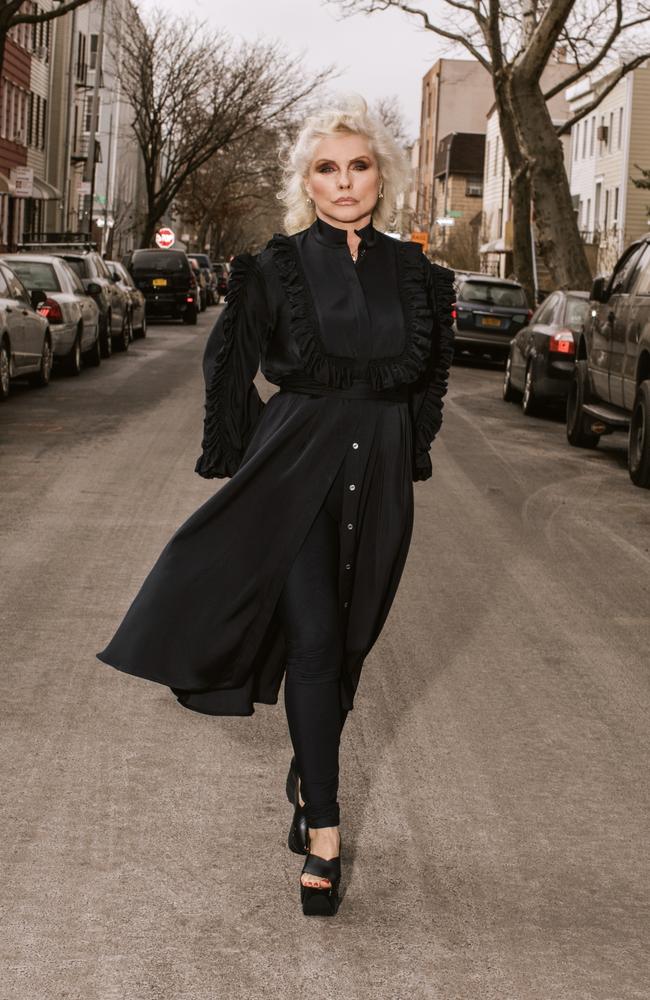
When Harry makes it clear this is not a topic of conversation she wants to continue, I ask her what she would rather talk about. “What’s going on in television, compared with what’s going on in film,” she replies. “TV has become much more powerful and much more interesting.” (For the record, Harry is watching Taboo and The Young Pope.)
It’s a tension that continues throughout our interview. Harry wants to talk about global warming, cleaning up rivers, and the challenges facing the world’s bees. I want to talk about her. It’s a problem commonly encountered by Harry profilers – her biographer, Cathay Che, described her as a difficult interview, not because she wasn’t interesting, or charming, but because she hates to talk about herself. “It’s a genuine modesty,” says Blondie’s manager of five years, Tommy Manzi.
It will therefore be interesting to see how Harry handles her memoir, which she’s working on at the moment. “It’s probably a good time to do it,” she says. “Before I am completely in dementia.”
“All artists, we all study one another.”
She admits the writing is progressing slowly. “It’s hard for me to remember everything. I moved pretty quickly,” she says. “I’m debating how honest to be. Most of it is pretty tame compared with what goes on today. Behaviour seems to be a bit more scandalous, or maybe it’s because it’s accepted today, or expected. So it seems to be like no holds barred, and that I should make the book as graphic or as wild as possible.”
Harry doesn’t like being called an icon (“I used to be a sex symbol, now I am an icon,” she said recently), but Manzi says “she is an icon – a fashion icon, a music icon, and a feminist icon”. I ask him to extrapolate on her feminism. “That was a difficult time in the music business,” he says, “in terms of what women could or couldn’t do, and the expectations on women. She wasn’t having it.”

Harry does acknowledge she’s had some influence on female musicians that followed her – including Cyndi Lauper, who’s touring Australia with Blondie in April. “As a young artist, [Blondie] had such a big impact on me,” Lauper says. “I just thought that Debbie was so cool.”
Harry says all artists learn from their predecessors. For her, it was Diana Ross, Cher and Dusty Springfield. “I think that in turn, what I have laid out and put out in the music world has trickled down into other people’s work. All artists, we all study one another.”
Our time is almost up, so I ask how many albums Harry has left in her. She laughs. “I would like to have at least 10 more albums in me, but then I would be as old as Fats Domino.”
Photography: Russell James
Creative Direction & Styling: Aleksandra Beare
Blondie is touring nationally with Cyndi Lauper in April, visit adayonthegreen.com.au and frontiertouring.com. Pollinator (Liberator Music/BMG) is out May 5.
Originally published as Debbie Harry: from sex symbol to music icon

